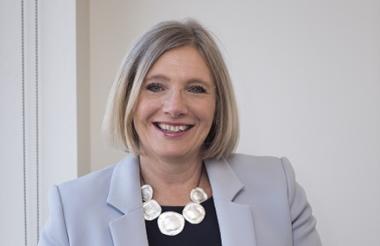The chief executive of the Charity Commission has criticised charities that try to get other charities into trouble just because they do not agree with their aims.
Helen Stephenson was giving a lecture last night at Cass Business School, as part of the Charity Talks series. In her response to a question from War on Want about the steps the Commission could take if charities are being targeted by other campaigners, she criticised organisations for trying to use the Commission as a means of "getting back" at each other.
Stephenson said: “I am disappointed at what I see coming into my inbox from all parts of the sector where people just dob each other in and use us as a way of getting back at another bit of the sector that they don’t agree with.”
She said she sees it from all parts of the charity sector.
“I see that from across the spectrum so I’m not pointing at one particular organisation,” she said. “To me that doesn’t enhance my concept of charity whether it’s from the left to the right or the right to the left.”
‘People don’t have to like everything you do’
Stephenson summarised the Commission’s recently published statement of strategic intent and its focus group research into what different people think about charities.
She said that universally there is a “fundamental expectation that being a registered charity should mean something” and that organisations “should be held to a higher standard because they are a charity”.
This means that “as well as having charitable aims, they should behave charitably”.
She said this conclusion was grounded in the Commission's own research and “not one that we have just made up."
But this does not mean that charities cannot tackle unpopular causes as the public will “respect a charity because of the way it conducts itself", she said.
“We are not suggesting that charities have to be universally likeable. This is not about charities competing for popularity,” she said.
‘Society is changing’
Stephenson also said that the charity sector must adapt as society changes.
“Charities must take note of society is changing. Part of our role as the Commission to understand the context in which charities work.”
But she said that at the moment it had “limited capacity to influence and engage across government” and that part of the Commission’s ambition is to change this.
“I want us to be an expert regulator informed by data,” she said.
The Commission is currently working on turning its strategy statement into a five-year action plan.
‘Increase in reporting is a good thing’
The Commission has seen a significant increase in its inquiry caseload and the number of incidents that are reported to it, but Stephenson said this did not mean there is more wrong-doing in the sector, but that charities are simply getting better at reporting.
“These figures, I don’t believe indicate an increase in problems occurring. We welcome a rise in charities reporting serious incidents,” she told the audience.
Judith Brodie, interim chief executive of Bond, asked how the Commission was ensuring messaging was nuanced “so that the public doesn’t misunderstand what is happening when reporting increases”.
Stephenson replied that the Commission did not bow to media pressure to release lists of charities which had reported serious incidents.
“We welcome increased reporting we don’t see that as a sign that things are necessarily more wrong,” she added.
She said the Commission actually has more concerns about charities operating in high-risk areas which do not report any incident and that it was writing to those ones, rather than those that have reported.
|
Related articles










